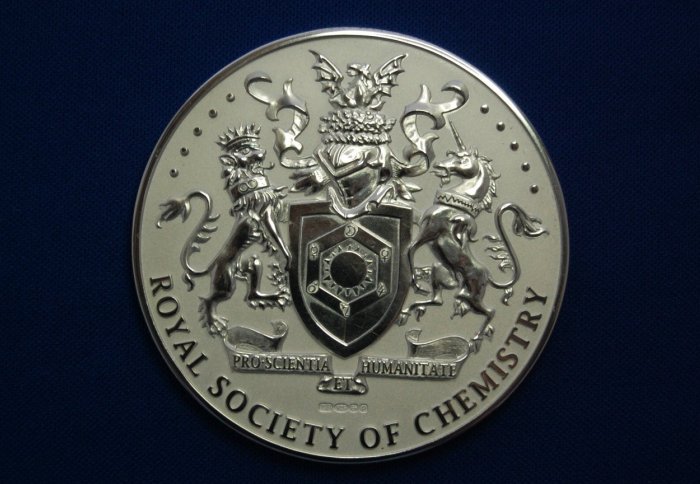Imperial researchers awarded Royal Society of Chemistry prizes

Scientists working on environmental chemistry, membranes and biomedical diagnostics have been honoured with Royal Society of Chemistry's prizes.
Professor Tony Cass is awarded the Sir George Stokes Award and Dr Mark Crimmin will receive the Harrison-Meldola Memorial Prize. The Membrane Biophysics Platform team have also been recognised with the Rita & John Cornforth Award.
 Professor Cass’s work focuses on the interface of chemistry, biomedical engineering and medicine. He combines biological molecules with nanomaterials to produce diagnostic devices for human, animal and plant health. These will serve to enhance the quality of life for those suffering from chronic illness and also contribute to improved food security and animal welfare.
Professor Cass’s work focuses on the interface of chemistry, biomedical engineering and medicine. He combines biological molecules with nanomaterials to produce diagnostic devices for human, animal and plant health. These will serve to enhance the quality of life for those suffering from chronic illness and also contribute to improved food security and animal welfare.
The Sir George Stokes Award is awarded for outstanding and sustained contributions to analytical science by someone demonstrably working in a complementary field, which has led to developments of seminal importance to chemical analysis. Professor Cass receives £2000, a medal and a certificate.
Professor Cass said: “I’m honoured and rather humbled by receiving the Sir George Stokes award. Throughout my career, I’ve had the privilege and benefit of working with many highly talented individuals; as mentors, colleagues and students. The achievements recognised by this award are in no small measure down to their guidance, determination and insight.”
 Dr Crimmin’s work focuses on chemical techniques that could be used to solve global challenges. For example, he investigates ways to transform environmental pollutants, such as fluorocarbons, into chemicals that could be used in pharmaceuticals, agriculture, or the development of new materials.
Dr Crimmin’s work focuses on chemical techniques that could be used to solve global challenges. For example, he investigates ways to transform environmental pollutants, such as fluorocarbons, into chemicals that could be used in pharmaceuticals, agriculture, or the development of new materials.
The Harrison–Meldola Memorial Prize is awarded for the most meritorious and promising original investigations in chemistry and published results of those investigations. Dr Crimmin receives £5000, a medal and a certificate.
Dr Crimmin said: “I am delighted with the recognition of the group’s work and deeply grateful to the talented members of my research group.”
 The Membrane Biophysics Platform engineer new membrane structures for everything from pharmaceutical products to artificial cells that mimic their biological counterparts.
The Membrane Biophysics Platform engineer new membrane structures for everything from pharmaceutical products to artificial cells that mimic their biological counterparts.
The Rita & John Cornforth Award is awarded to scientists working in collaborative research teams between the chemistry and life sciences disciplines. The Membrane Biophysics Platform team receives £2000, a medal and a certificate.
On receiving the award, the team, led by Dr Nicholas Brooks, Professor Oscar Ces, Dr Yuval Elani, Dr Robert Law and Professor John Seddon said: “We are delighted to be awarded the RSC Rita and John Cornforth Award, recognising our achievement in building a community of scientists to understand the behaviour of membranes. We are looking forward to building on our success to further drive forward innovation and the application of soft membrane materials.”
Dr Robert Parker, chief executive of the Royal Society of Chemistry said: “It is an honour to celebrate the innovation and expertise of our community through our prizes and awards. We know that chemistry can be a powerful force for good, and quality research and communication of that research are more important than ever before.
“Our charitable mission is to advance excellence in the chemical sciences, and we are proud to celebrate our inspiring and influential winners, who share that mission.”
-
Image of medal credit: Andy Mabbett/Wikimedia Creative Commons
Article text (excluding photos or graphics) © Imperial College London.
Photos and graphics subject to third party copyright used with permission or © Imperial College London.
Reporter
Hayley Dunning
Communications Division